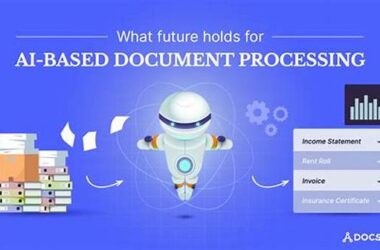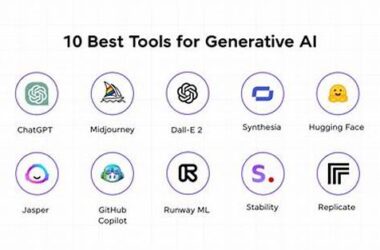Why AI Assistants Are Replacing Traditional Scheduling Apps
In the ever-evolving landscape of digital innovations, AI assistants are becoming the star players, gradually edging out traditional scheduling applications from the spotlight. These intelligent companions have tapped into a unique selling point that traditional apps fail to deliver: a seamless blend of efficiency, personalization, and smart adaptability. Imagine the busy executive, juggling meetings across time zones, only needing a verbal cue to realign a full day’s itinerary. Or the parent navigating multiple family schedules with a simple voice command. The ever-present AI assistant stands by, learning preferences, optimizing paths, and becoming almost an additional, indispensable team member.
Read More : Why Voice Ai Tools Are Transforming Office Communication
While traditional scheduling apps once reigned supreme, offering straightforward features like calendar invites and basic reminders, they began lagging behind in an agile world demanding more fluidity. The old model crumbles when faced with complex, dynamic scheduling needs that span beyond mere time zones and reminders. Enter AI assistants: equipped with advanced machine learning capabilities, these assistants interpret patterns, predict needs, and with uncanny precision, offer solutions before a problem is even articulated. It’s like having a personal secretary in your pocket, but smarter, faster, and more intuitive.
The charm of AI assistants isn’t solely in their ability to juggle dates and deadlines but in how they integrate life’s ebb and flow into their algorithms. Traditional apps run on static commands, requiring constant manual input. AI, however, learns from every interaction, making choices that seem almost human-like. They also bring an element of humor and companionship—who knew a scheduling app could make you smile or laugh with their witty retorts? AI assistants have reframed time management into an engaging narrative, reminiscent of an amusing story recounted by a good friend.
The Transformation from Traditional to AI Scheduling
The transformation from traditional scheduling apps to AI-driven assistants isn’t merely a shift in digital tools; it’s a revolution in how we perceive and interact with our schedule. Traditional apps demand attention—an endless stream of clicks and inputs, exhausting even the most tech-savvy users. But why should managing time be a chore? Enter the realm of AI assistants, where scheduling becomes not just easier, but engagingly efficient. The appeal lies in transforming what was once a tedious task into a seamless, even pleasant experience. Simply put, AI assistants aren’t just tools—they are sophisticated partners steering us through the whirlwind of modern life.
Embracing the future of scheduling means embracing the smart nuances of AI assistants. These digital dynamos leverage data points to predict and suggest optimal times for meetings, identify potential conflicts, and even suggest alternative meeting venues based on previous preferences—all without your manual input. We are at a fascinating crossroads where AI technology becomes the driver of change, prompting us to wonder just how long it will be before phrases like “traditional scheduling app” fade into nostalgia. The statistics tell the same story: a clear upwards trend in AI assistant adoption suggests an inevitable dominance. And the beauty is in their evolution; the more they’re used, the smarter they become, seamlessly integrating with virtual assistants in homes and offices alike.
—
The Goals and the Rise of AI Assistants
Understanding the Need for Change
The primary goal behind the shift towards AI assistants lies in creating an experience that’s not only efficient but also personalized. Why AI assistants are replacing traditional scheduling apps is a question rooted in the pursuit of streamlined productivity. Traditional scheduling apps, with their static nature, fail to adapt to the dynamically shifting demands of modern-day responsibilities. They don’t leverage the powerful insights data can offer in real-time. AI assistants, on the other hand, are capable of leveraging these insights, adapting on-the-go, and providing users with a remarkably tailored and responsive experience, hence transforming the mundane to something much more valuable.
Personalization: The Game Changer
AI assistants provide a level of personalization in scheduling that is unmatched by their traditional counterparts. They learn from each interaction, understanding the user’s habits, preferences, and recurring patterns. This ability to anticipate user needs is why AI assistants are replacing traditional scheduling apps at an astounding pace. For instance, if you often attend meetings around the same time each week, the AI will learn to prioritize this time slot, even suggesting meeting durations based on historical data of past interactions. They act not only on data but on the subtler cues that human assistants offer, making them a unique, indispensable addition to our digital arsenal.
The Power of Integration and Efficiency
The integration capabilities of AI assistants surpass traditional apps significantly. They connect effortlessly with other systems, be it email platforms, cloud services, or communication tools, creating a unified ecosystem of productivity. Traditional scheduling apps often require manual entry and separate logins, leading to inefficiencies. In contrast, AI assistants can pull from multiple data sources to create a coherent narrative of your day, offering suggestions, reminders, and even executing tasks without user intervention. This consolidation is why AI assistants are replacing traditional scheduling apps and redefining how work gets done in the modern era.
Looking Toward the Future
As AI technology continues to evolve, so does its potential impact on our daily lives. The ultimate aim of AI assistants is not merely to replace current applications but to enhance human capabilities, allowing us to use our time more effectively. By removing repetitive tasks, AI empowers users to focus on creative and strategic initiatives. In this digital age, the move to AI assistants marks the next step in human evolution towards more intelligent, proactive systems that work alongside us, embodying progress and innovation in every interaction. The appeal of an AI-driven future continues to grow, fostering a new era of limitless possibilities and creative problem-solving.
—
Key Reasons Why AI Assistants Are Gaining Popularity
The Future of Scheduling
AI assistants bring a shift in how we perceive time management. Gone are the days when scheduling was a laborious process involving manual calendar entries and constant notifications. Instead, AI assistants bring a level of intelligence that allows them to handle scheduling dynamically. By utilizing real-time data and historic user preferences, they curate an experience optimized for the user. This transition signifies a broader shift in technology, showcasing the potential for AI to not only enhance productivity but to fundamentally change how we approach everyday tasks. This is why AI assistants are replacing traditional scheduling apps; they aren’t just tools—they’re revolutionary partners in efficiency.
Enhancing User Experience
The depth of user experience offered by AI assistants is unparalleled. They ensure tasks are not just completed but are executed in the most efficient and satisfactory manner. This intelligent engagement transforms tasks that were once mundane into streamlined processes, encouraging users to reimagine what technology can accomplish. With humor, wit, and efficiency woven into their functionality, these assistants are not just about performing tasks but about enhancing the overall user experience. This creative and empathetic approach is precisely why AI assistants are replacing traditional scheduling apps at such a rapid pace.
—
Discussion on the Impact of AI Assistants
With technology advancing at a rapid pace, AI assistants have emerged as the next evolutionary step in personal productivity. These digital entities impose a level of convenience that traditional scheduling apps struggle to emulate. Why AI assistants are replacing traditional scheduling apps can be attributed to their ability to integrate multiple facets of daily life into one streamlined experience, making them indispensable for users looking for comprehensive solutions.
AI assistants operate on a level of intelligence that turns scheduling into an art form. By assimilating data from calendar events, social cues, and digital interactions, they draft schedules that cater to the user’s specific needs, often before the need is expressed. This proactive approach aids users by minimizing the chaos inherent in static scheduling systems. Users aren’t merely inputting data; they’re engaging in a dialogue with a system designed to learn and grow alongside them, a capability traditional scheduling systems lack.
The emotional connection formed through this process transforms AI assistants from mere tools into digital companions. Their ability to comprehend the user’s habits and predict future requirements fosters a reliance on them. This bond is a far cry from the passive nature of traditional apps, confined to executing orders and outputting reminders. The interaction with AI assistants feels personal, even fun, as they learn user preferences and adapt to various nuances. Integrating humor and wit makes them feel less like programs and more like partners heralding a new era of digital interaction.
As society continues to embrace these technological advances, the debate surrounding AI’s role in daily life becomes increasingly relevant. On the surface, their primary purpose addresses productivity and efficiency, but on a deeper level, they challenge traditional perspectives on technology’s role in human interaction. AI’s ongoing integration into daily routines signals a shift in how people engage with technology, steering their capabilities towards enhancing quality of life. This evolution from traditional apps to intelligent, adaptive systems underscores the innovative trajectory that technology continuously pursues.
—
Benefits of AI Assistants in Scheduling
Understanding the AI Advantage
The shift towards AI assistants is more than a technological trend—it’s a reflection of changing expectations for efficiency and user experience. By leveraging advanced algorithms and data analytics, AI assistants fulfill roles that demand high adaptability and personalized interaction, aspects traditional scheduling apps inherently lack. This progressed convenience empowers users to achieve more with less stress, optimizing both professional and personal time management.
Efficiency Meets Personalization
AI assistants are designed to cater uniquely to each user, providing a personalization that’s key to modern demands. They offer a hands-off approach, automating tasks and providing intuitive suggestions based on historical data. This functionality enhances efficiency by freeing users from tedious scheduling, allowing them to focus on more significant endeavors. This transition to AI solutions represents a leap into more dynamic scheduling capabilities, illustrating why ai assistants are replacing traditional scheduling apps in today’s digital age.



